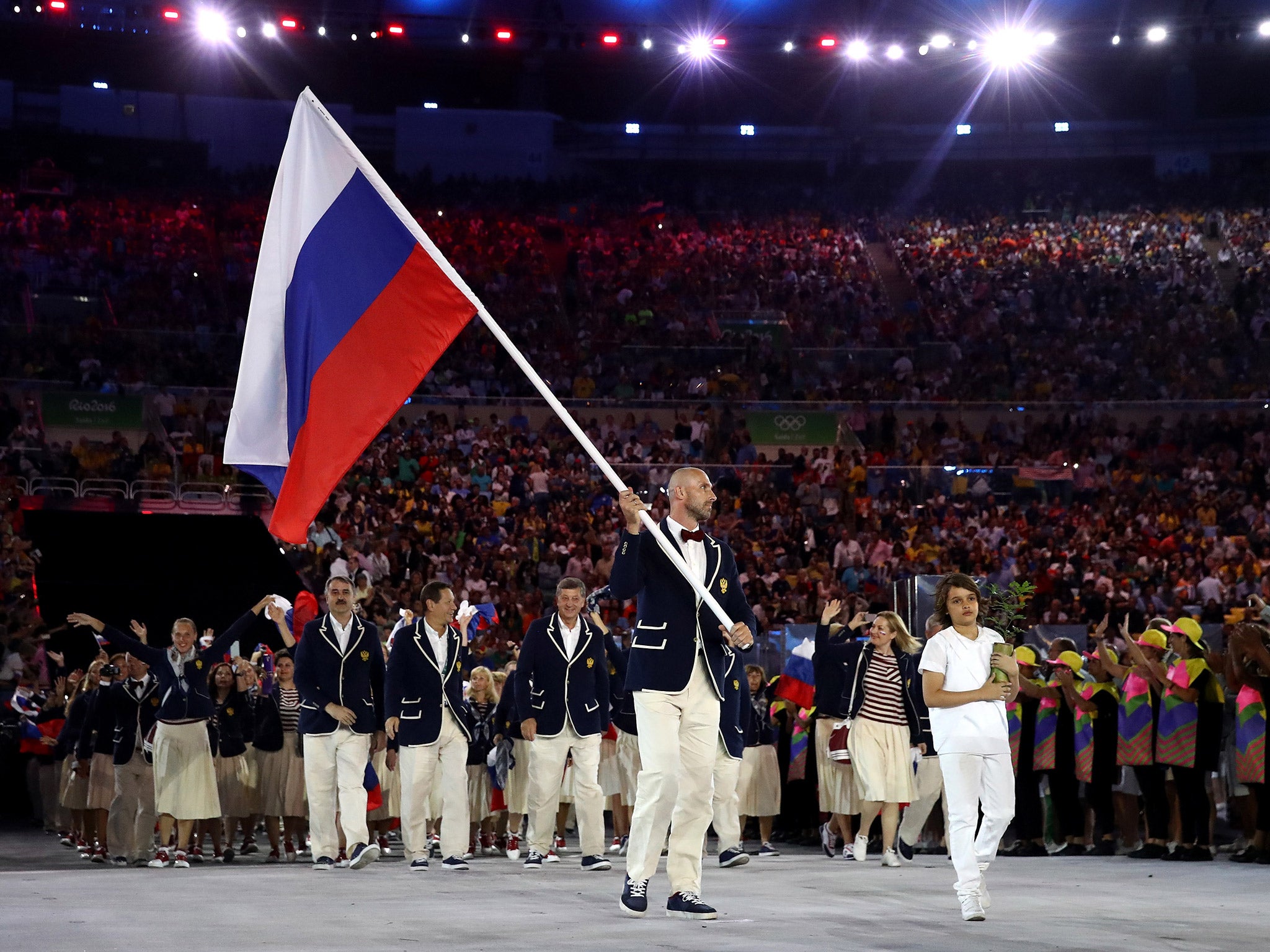Rio 2016: Paralympics ready to ban all Russian athletes from Games over state-sponsored doping claims
The IOC chose not to issue a blanket ban on Russian athletes but it appears the International Paralympic Committee have decided to outlaw any competitor from Russia

Your support helps us to tell the story
From reproductive rights to climate change to Big Tech, The Independent is on the ground when the story is developing. Whether it's investigating the financials of Elon Musk's pro-Trump PAC or producing our latest documentary, 'The A Word', which shines a light on the American women fighting for reproductive rights, we know how important it is to parse out the facts from the messaging.
At such a critical moment in US history, we need reporters on the ground. Your donation allows us to keep sending journalists to speak to both sides of the story.
The Independent is trusted by Americans across the entire political spectrum. And unlike many other quality news outlets, we choose not to lock Americans out of our reporting and analysis with paywalls. We believe quality journalism should be available to everyone, paid for by those who can afford it.
Your support makes all the difference.The International Paralympic Committee (IPC) is ready to show the resolve the Olympic movement has lacked by declaring on Sunday that it will ban all Russians from its own Games later this month.
The organisation is known to have ordered the Russian Paralympic Committee to appear before it last week and answer detailed questions about state-sponsored doping, uncovered by the Independent Commission of the World Anti-Doping Agency (Wada) led by Canadian sports law professor Richard McLaren last month.
Though the Russians said on Wednesday that they retained some hope of not being banned, the IPC is expected to declare in Rio de Janeiro at 17:00 local time [21:00 BST] on Sunday that none of the country’s Paralympic competitors are welcome at its Games.
The IPC’s determination to investigate McLaren’s findings with Vladimir Lukin, the president of the Russian Paralympic Committee (RPC), comes in contrast to the International Olympic Committee (IOC), which did not even consult McLaren before deciding against a blanket ban. The IOC’s apparent reluctance to capitalise on McLaren’s work revealed itself again at the Olympic Games Opening Ceremony on Friday night, when president Thomas Bach did not even allude to state-sponsored Russian doping.
But the IPC, led by Xavier Gonzalez, has adopted a far more inquisitive approach. It pursued new lines of inquiry with McLaren before its cross-examination of Lukin at its headquarters in Bonn – a session which is thought to have turned up further relevant information.
The Russians seemed positive and confident after Wednesday’s meeting. "The [IPC] session was held in a standard mode," Lukin said in an interview with the Russian news agency TASS two days ago. "We have been asked questions by a contradictory side and gave answers. Following three hours of discussions, the International Paralympic Committee announced that the decision would be made within three days, most likely by Saturday. We consider all possible outcomes." But though the situation does remain fluid and discussions were continuing throughout Saturday, the IPC is now minded to issue a ban.
The IOC’s reluctance to issue a total ban on Russia had put the IPC under pressure to do the same. The IPC had already provisionally suspended the Russians, having last month opened a disciplinary case against the Russian Paralympic Committee, after 35 Russian Paralympic athletes were mentioned in the report. Its own more pro-active approach is believed to have strengthened its resolve to take a different course of action.
As well as the 35 “disappearing positive” Russian drug tests across Paralympic sport between 2012 and 2015, the McLaren report confirmed that the 2014 Winter Paralympics in Sochi, where Russia won three times as many medals as any other country, was compromised by swapped samples.
At the 2016 Olympics Opening Ceremony, the IOC’s Bach made no allusion to Russia, despite the McLaren report dominating the background and the chairman of the United States Olympic Committee telling The Independent that he had “sympathy” with athletes competing against Russians.
Instead, Bach told the audience in the Maracana: “We are living in a world where selfishness is gaining ground; where certain people claim to be superior to others.” Asked on Saturday why Bach had not alluded to Russia, the IOC said he had done so, in private meetings.
Asked about the comparative approaches of the IPC and IOC to his report, McLaren said this week: “[The IPC] have consulted with me very closely. We have done forensic work with them, we’re in the process of doing analytical work. They were in contact with me within hours of my report being published.”
The IPC said on Saturday that it could not confirm that a decision had been taken to issue a blanket ban of Russian paralympians. The organisation said in a statement: "The IPC’s decision on the membership status of the Russian Paralympic Committee will not be announced until Sunday 7 August at a press conference in Rio.”
Join our commenting forum
Join thought-provoking conversations, follow other Independent readers and see their replies
Comments